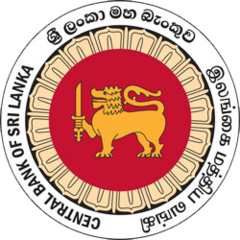Commercial
Bank PLC
Product of the bank,
1.
Savings
Accounts
A. Main
Accounts
I.
Regular Savings Accounts
If you are a resident of Sri Lanka, over the age of 18
years, you can open this as an individual account or a joint account. The
interest rate of this account is 3.50% P.A.
II.
Super Saver Accounts
You can open an account
with a minimum deposit of Rs 50,000/-. Higher interest rates as your deposit
value increases. A Loan facility up to 90% of deposit balance at a special
concessionary interest rate.
Commercial Bank Online Banking facility with a 50% concession on the startup
and annual fee.
III.
Power Bonus
Accounts
Flexibility of a
Savings Account and the high interest available on a Fixed Deposit. A
specialized Savings Account that pays a quarterly bonus of 60% on the interest
earned. Power bonus is a great opportunity for first time wage earners as well
as the self-employed. Also for small and medium scale savers can earn a high
return. The minimum balance you need to maintain this account is Rs 5000/-.
Monthly interest paid-
(60% more) – 3.5% P.A.
IV.
Personal
Foreign Currency Accounts
You can apply for Sri
Lanka rupee or foreign currency loans & advances at concessional rates.
This facility enables you to retain the foreign currency deposits intact.
Arrangements can be made for a member of your family or friend to operate this
account on your behalf.
V.
Udara
Senior Citizens Accounts
A special interest rate
higher than the normal interest rate is offered (11.5% P.A.). additional
interest rate up to 1% over the interest rate paid for regular savings account.
B.
Minors and
Youth accounts
VI.
Arunalu
Children’s Savings Accounts
Cash prizes of Rs
10,000/-, Rs 7,500/- and Rs 5,000/- respectively for account holders who have
gained the 1st, 2nd and the 3rd highest
marks in school term tests. Interest rate per annum is 6.5%.
VII.
Dotcom Teen
Accounts
Withdrawals up to Rs
20,000/- per day can be made through branch counters or ATMs.
VIII.
Anagi
Women’s Savings Accounts
Minimum deposit of
1000/-
2.
Fixed Deposits
I.
Millionaire
Accounts
Selectable investment
period spanning from 2 to 6 years. Ability to receive any amount starting from Rs.
500,000/- (In multiples of Rs. 500,000/-). Instant loan up to a maximum of 75%
of the account balance.
II.
Money Market Accounts
Seven days’ prior notice is
required for withdrawal of funds & a minimum account balance of Rs.
100,000/- should be maintained to earn the special interest rate (8.25% P.A.).
III.
Treasury Bonds
Maturity period ranges from 2 to
20 years.
IV.
Fixed Deposits
Get up to 90% of
the deposit as a cash advance.
C.
Current Accounts
I.
Achiever Current
Accounts
Credit cards with the joining fee
and the 1st year annual fee. Account can be opened with a minimum
deposit of Rs.10000/-. You will receive monthly
statements of account. You also have the option of receiving e statements to an
email address of your choice.
D.
Loans
I.
Home
Loans
Loan approval
can be got in 3 days without any additional charges. Can have longer repayment
period. And gives attractive and competitive low interest rates. To get this
loan you should have a minimum monthly income of Rs.25000/-. This loans are
available for,
·
Purchasing
a house, apartment or land
·
Building
a house
·
Completing
a partially built house
·
Renovate,
extend or complete a house
·
Paying
off an existing home related loan
II.
Foreign
Currency Home Loans
The approval of
the loan can be got in 3 days without any additional charges. And have longer
repayment period. To get this loan you should be a Sri Lankan employed abroad
who is in a position to service such loans in foreign currency and you could borrow from USD 25,000/- to USD 100,000/- or
equivalent in other currencies mentioned above.
III.
Personal Loans
The maximum loan
amount you can obtain is flexible, depending on your disposable income,
repayment capacity and requirements. Your loan will be processed within a
maximum of three working days, after submitting the loan application with all
required documents.
You can obtain
the lone for following purposes,
·
Purchase
of vehicles
·
Payment
of credit card balances
·
Higher
education for you or an immediate family member – locally or abroad
·
Fund
weddings or other social functions
·
Surgical
and medical expenses
IV.
Green
Loans
To obtain this
loan you should be a permanent employee with a minimum monthly salary of
Rs.50000/- and you should have a minimum service of 01 year in the current
employment. Maximum repayment period for loan is 7 years. The loan is minimum
of Rs.50000 and maximum of 3mn*
V.
Pensioners’
Loan
This loan
available for government pensioners. The minimum net pension should be
Rs.15000/- per month. The minimum loan amount is Rs.100000/- and the maximum is
Rs.2500000/-. The loan can obtain for followings,
- Renovations of your house
- Travelling abroad
- Surgical and medical expenses of family members
- Wedding expenses of children
- Educational expenses of children
- Settle existing loan/credit cards from other Banks
E.
Leasing
I.
Green Leases
Leases to fund
purchasing of hybrid vehicles, electric vehicles, solar panels & Other
energy efficient machinery / equipment. To get this loan employee should be a
permanent employee with a minimum monthly salary of Rs.50000/- and should have
a minimum service of 01 year in the current employment.
II.
Super Leasing
With ‘Super Leasing”
you can pay part of the vehicle’s value at the end of the lease period-so your
monthly rental is calculated for only a part of the value of the vehicle.
Therefore, the monthly rental you have to pay is lower than of a
regular leasing facility. This will enable you to buy a
higher value vehicle at a lower monthly rental.
